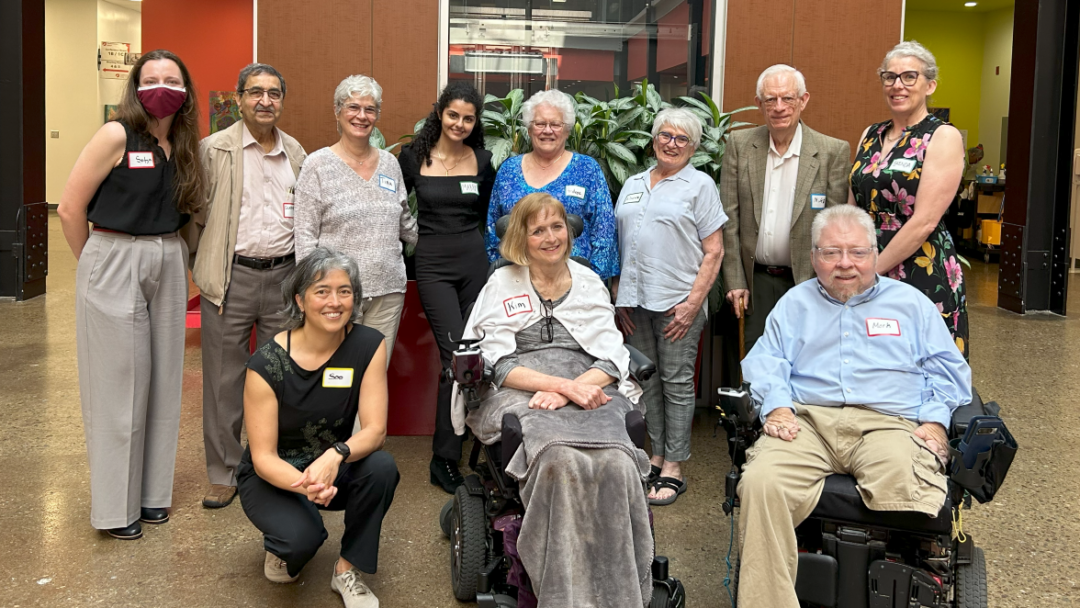Who cares about aging? Uniting community and academia in aging research

On May 22, 2024, the McMaster Collaborative for Health and Aging hosted a community-based, academic event designed to demystify the research process and highlight the invaluable role of older adults in aging- and health-focused research.
Inspired by older adult partner Penelope Petrie’s vision for older adults, trainees and researchers to come together and learn from each other, the event was planned by Collaborative trainee member, Marfy Abousifein and an advisory committee comprising older adult partners and McMaster students.
“For a long time, I have been thinking about a way to inform older adults about the work being done by trainees and researchers at the Collaborative. The presentations of complex, technical research projects in accessible language were wonderful. All of the presenters did a great job, generating thoughtful comments and questions from the audience. I hope that this event becomes a regular part of the Collaborative’s calendar. Many thanks to Marfy and the team for organizing such a fantastic event.” — Penelope Petrie, older adult partner and event co-planner
This half-day event, held in Hamilton, ON, provided a platform for researchers and trainees to present their work in an accessible five-minute format to receive feedback on their projects, particularly from older adult community members in attendance. Additionally, older adults were able to learn more about aging-focused research—from laboratory to clinical research—in an accessible and engaging way.

“It was great to see trainees deepen their connection to the communities that their research aims to serve. Ultimately, we hope that this is a step towards amplifying community voices in biomedical and clinical research,” said event co-planner, Marfy Abousifein.
Aiming to inform and empower older adults from the community to join the aging and health research space, this event also emphasized the importance of engaging with older adults in research to align research goals with the interests and priorities of the older adults, particularly for marginalized populations often underrepresented in academia.
“I loved the diversity of research being presented. It was great to see so many students and with such great presentations. It was also lovely to see so many older adults in the community interested in aging research at McMaster,” expressed an older adult attendee.
Overall, the event was successful in improving the ability of researchers and trainees to engage the public, which is a step towards creating scientific progress that is meaningful to communities.
This trainee led project was supported in part by McMaster’s MacPherson Institute Student Partners Program.
